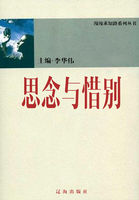THE TREND OF SENTIMENT -- (CONTINUED)NATURE OF THE SENTIMENT OF BROTHERHOOD -- FAVORED BY COMMUNICATIONAND SETTLED PRINCIPLES -- HOW FAR CONTEMPORARY LIFE FOSTERS IT -- HOW FARUNCONGENIAL TO IT -- GENERAL OUTCOME IN THIS REGARD -- THE SPIRIT OF SERVICE-- THE TREND OF MANNERS -- BROTHERHOOD IN RELATION TO CONFLICT -- BLAME-- DEMOCRACY AND CHRISTIANITY
THE sentiment of mutual kindness or brotherhood is a simple and widespread thing, belonging not only to man in every stage of his development, but extending, in a crude form, over a great part of animal life. Prince Kropotkin, in his Mutual Aid a Factor in Evolution, has collected illustrations of its universality and significance. ". . . the necessity of communicating impressions," he says, "of playing, of chattering, or of simply feeling the proximity of other kindred living beings pervades nature, and is, as much as any other physiological function, a distinctive feature of life and impressionability." [1] Darwin perceived, what Kropotkin and others have illustrated with convincing fulness, that this fusing kindliness underlies all higher phases of evolution, and is essential to the cooperative life in which thought and power are developed. The popular notion that kindly sentiment can only be a hindrance to the survival of the fittest is a somewhat pernicious misapprehension.
This sentiment flourishes most in primary groups, where, as we have seen, it contributes to an ideal of moral unity of which kindness is a main part. Under its in (190) fluence the I-feeling becomes a we-feeling, which seeks, no good that is not also the good of the group. And the humanism of our time strives with renewed energy to make the we-feeling prevail also in the larger phases of life. "We must demand," says a writer who lives very close to the heart of the people, [2] " that the individual shall be willing to lose the sense of personal achievement, and shall be content to realize his activity only in connection with the activity of the many." Huxley at one time felt this so strongly as to say, "If I had 400 pounds a year I would never let my name appear to anything I did or shall do.' [3]
Such utterances, though significant, are one-sided, and it is perhaps more in the way of real progress to demand, not that the sense of personal achievement shall be given up, but that it shall be more allied with fellow-feeling.
The sort of ambition congenial to the we-feeling is one directed toward those common aims in which the success of one is the success of all, not toward admiration or riches. Material goods, one feels, should not be appropriated for pride or luxury, but, being limited in amount, should be used in a consciousness of the general need, and apportioned by rules of justice framed to promote a higher life in the whole.
Much might be said of the we-feeling as joy: Perchè; quanto si dice piu li nostro, Tanto possiede piu di ben ciascuno, E piu di caritate arde in quel chiostro. [4]
(191) For there, as much the more as one says Our , So much the more of good each one possesseth, And more of charity in that cloister burns. [5 ] There is nothing more wholesome or less pursued by compunction. To mingle our emotions with fellowship enlarges and soothes them; even resentment on behalf of us is less rankling than on behalf of only me, and there is something cheerful in suffering wrong in friendly company. One of the most obvious things about selfishness is the unhappiness of it, the lack of imaginative expatiation, of the inspiration of working consciously with a vast whole, of "the exhilaration and uplift which come when the individual sympathy and intelligence is caught into the forward intuitive movement of the mass." [6] Fellowship is thus a good kind of joy in that it is indefinitely diffusible; though by no means incapable of abuse, since it may be cultivated at the expense of truth, sanity and individuality.
Everything that tends to bring mankind together in larger wholes of sympathy and understanding tends to enlarge the reach of kindly feeling.
Among the conditions that most evidently have this effect are facility of communication and the acceptance of common principies. These permit the contact and fusion of minds and tend to mould the group into a moral whole.
In times of settled principles and of progress in the arts of communication the idea of the brotherhood of man has a natural growth; as it had under the Roman Empire. On the other hand, it is dissipated by whatever breaks up (192) the moral unity and makes human interests seem inconsistent. Not only war, but all kinds of destructive or unregulated competition, in which the good of one party appears to be a private good gained by the harm of an other, are reflected in the mind by unkindly feeling. What human nature needs is梟ot the disappearance of opposition, which would be death梑ut the suppression of destructive forms, and the control of all forms by principles of justice and kindness, so that men may feel that the good survives.
As regards the bearing of contemporary conditions upon the spirit of brotherhood, we find forces at work so conflicting that it is easy to reach opposite conclusions, according to the bias of the observer.
The enlargement of consciousness has brought a broadening of sentiment in all directions. As a rule kindly feeling follows understanding, and there was never such opportunity and encouragement to understand as there is now. Distant peoples桼ussians, Chinese and South Sea Islanders; alienated classes梒riminals, vagrants, idiots and the insane, are brought close to us, and the natural curiosity of man about his fellows is exploited and stimulated by the press. Indeed, the decried habit of reading the newspapers contributes much to a general we-feeling, since the newspaper is a reservoir of commonplace thought of which every one partakes梐nd which he knows he may impute to every one else梡ervading the world with a conscious community of sentiment which: tends toward kindliness.















